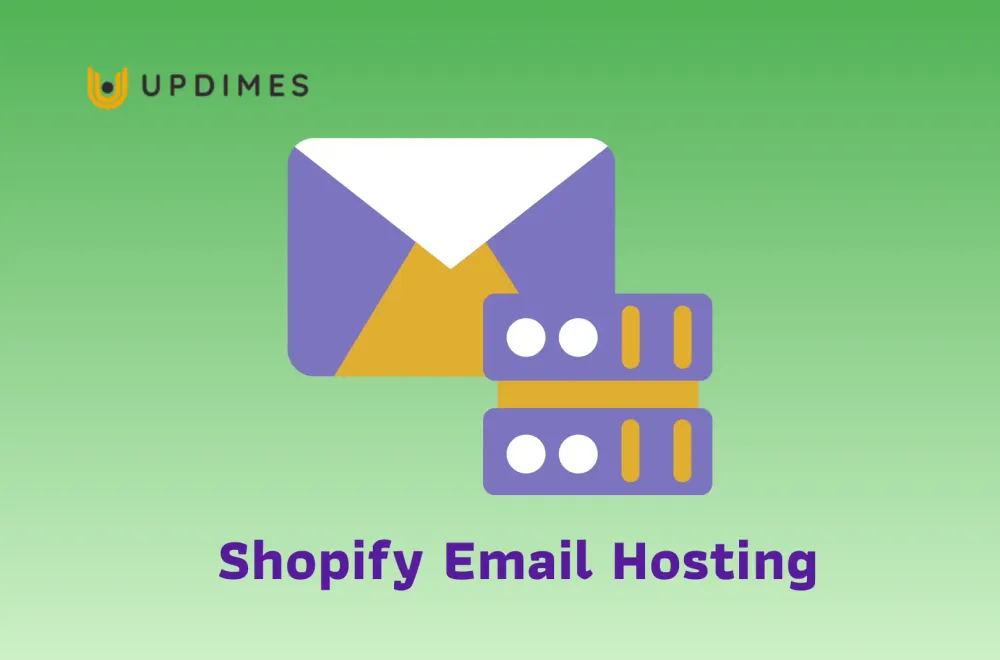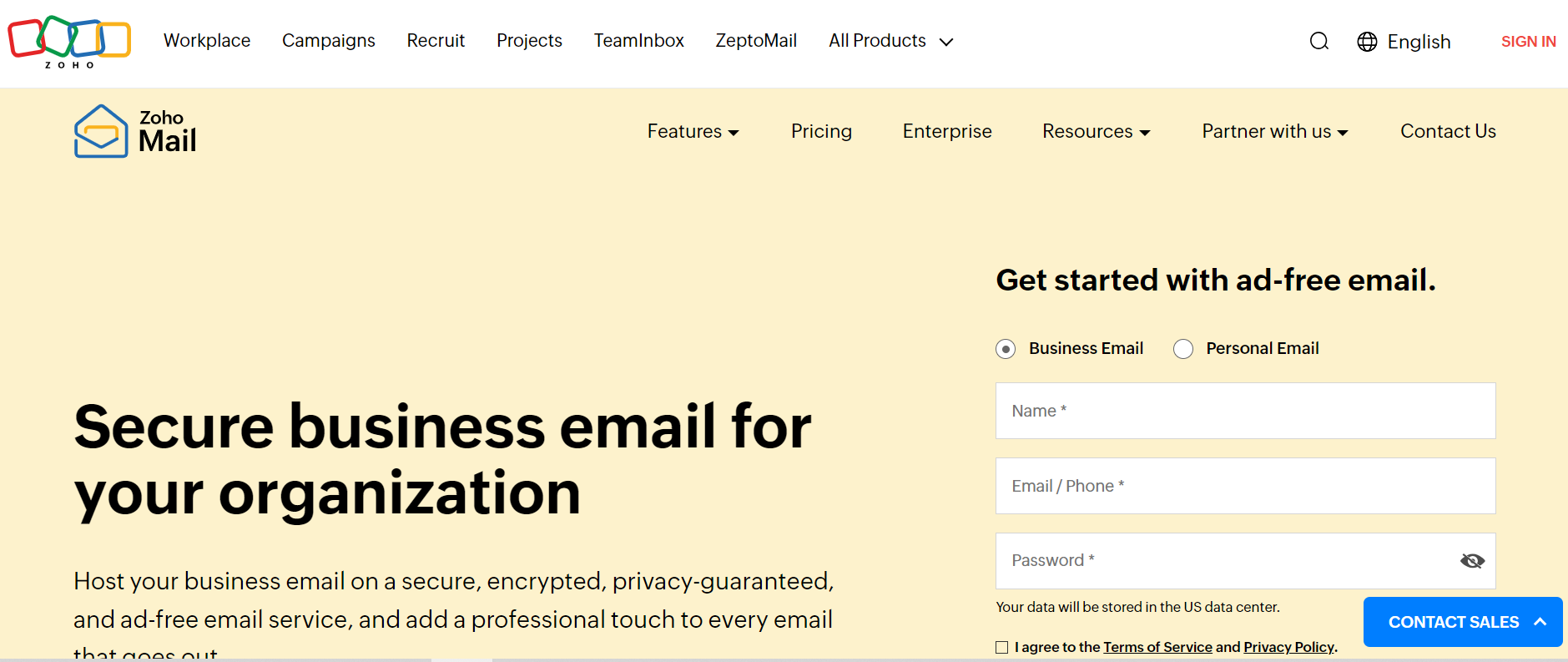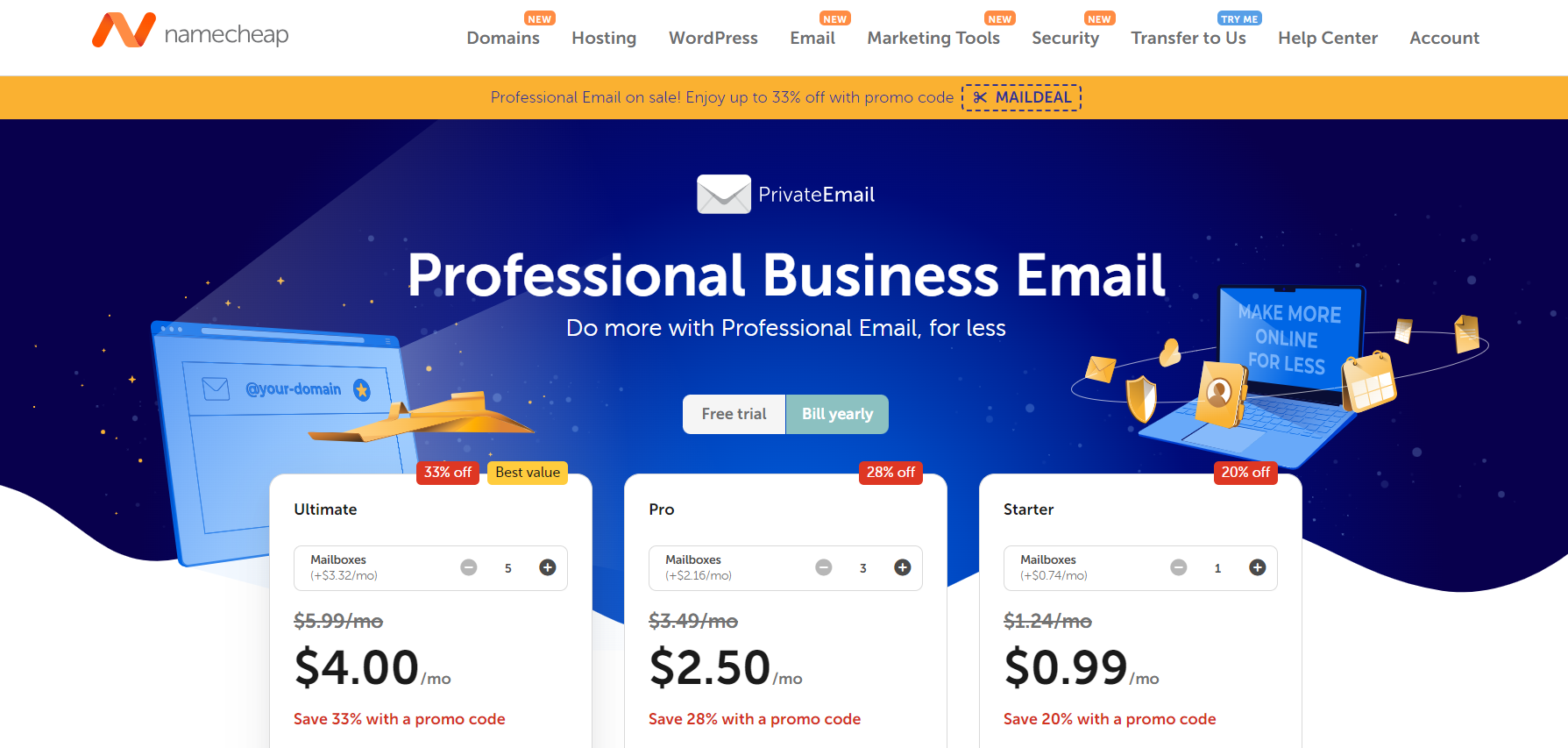Shopify Email Hosting: A Complete Guide for Beginner

In today's digital age, having a professional email address is crucial for any business, including those running on Shopify. While Shopify excels at providing powerful eCommerce solutions, it does not offer built-in email hosting services. This means that to create and manage custom email addresses (e.g., info@yourstore.com), you'll need to utilize third-party email hosting services.
This comprehensive guide will walk you through the importance of email hosting for your Shopify store. Whether you're a beginner or looking to enhance your online business communication, this guide is designed to help you make informed decisions and streamline your email setup process.
What Is Email Hosting?
Email hosting is a service that operates email servers, enabling users to send, receive, and store emails using custom domains (e.g., name@yourdomain.com). It offers professional email addresses, security features (spam filtering, encryption), and reliable storage. There are various types, including shared, dedicated, and cloud-based hosting.
The benefits of email hosting include enhanced professionalism, reliability, security, and more useful features. When choosing a provider, consider storage limits, security measures, uptime guarantees, customer support, and integration with other tools. Email hosting is essential for businesses to manage email communication efficiently and securely.
Shopify doesn't include built-in email hosting with its platform, but you can set up custom email addresses using a third-party email hosting service.
Benefits of Email Hosting
Email hosting offers several key benefits, including enhanced professionalism, improved security, and a range of value-added features:
- Custom Domain: Use a custom domain (e.g., name@yourdomain.com) for your email addresses, enhancing your brand's professionalism and credibility.
- Branding: Reinforces your brand identity in every email you send, creating a consistent and professional image.
- Advanced Security: Includes features like spam filtering, virus protection, and encryption to protect against cyber threats.
- Privacy: Secure communication channels ensure the confidentiality of sensitive information.
- Compliance: Helps meet industry standards and regulations for data security and privacy.
- Storage: Generous storage limits for emails and attachments.
- Collaboration Tools: Access to integrated tools like calendars, contacts, and task management, enhancing productivity.
- Accessibility: Webmail access and synchronization across multiple devices ensure you can manage your email from anywhere.
- Support: Dedicated technical support to resolve issues promptly.
More Value-added Features
More Secure
More Professional
3 Ways to Set Up Shopify Email Hosting Using Different Services
In this article, we are going to mention 3 email hosting services for Shopify. Let’s explore which one suits your business.
1. Using Google Workspace
Google Workspace (formerly G Suite) provides professional email hosting along with a comprehensive suite of Google applications. It's widely used due to its powerful features and seamless integration.

Step-by-Step Guide:
- Purchase Google Workspace:
- Visit the Google Workspace website and select a plan that suits your needs.
- Sign up using your custom domain (e.g., yourdomain.com).
- Verify Your Domain:
- Google will provide a TXT record to add to your DNS settings for domain verification.
- Log in to your Shopify admin panel, navigate to “Online Store” > “Domains.”
- Select your domain and click on “DNS Settings.”
- Add the TXT record provided by Google to the DNS records.
- Set Up MX Records:
- Add the MX records provided by Google Workspace to your Shopify DNS settings. Google typically provides multiple MX records:
- ASPMX.L.GOOGLE.COM (priority 1)
- ALT1.ASPMX.L.GOOGLE.COM (priority 5)
- ALT2.ASPMX.L.GOOGLE.COM (priority 5)
- ALT3.ASPMX.L.GOOGLE.COM (priority 10)
- ALT4.ASPMX.L.GOOGLE.COM (priority 10)
- Add the MX records provided by Google Workspace to your Shopify DNS settings. Google typically provides multiple MX records:
- Create Email Accounts:
- Once the domain is verified and MX records are set, log in to the Google Admin Console.
- Create user accounts (e.g., info@yourdomain.com) for each team member.
- Configure Email Clients:
- Configure email clients (Gmail, Outlook, Apple Mail, etc.) using the IMAP/POP and SMTP settings provided by Google Workspace.
Benefits:
- Seamless Integration: Google Docs, Sheets, Drive, and Calendar integration.
- Security: Advanced security and admin controls, including two-factor authentication.
- Collaboration: Robust collaboration tools.
2. Using Zoho Mail
Zoho Mail is a feature-rich email hosting service that offers a suite of productivity tools. It's particularly well-suited for businesses looking for an integrated approach.

Step-by-Step Guide:
- Sign Up for Zoho Mail:
- Go to the Zoho Mail website and choose a plan that fits your business needs.
- Sign up using your custom domain.
- Verify Your Domain:
- Zoho will provide a TXT or CNAME record for domain verification.
- Log in to your Shopify admin panel, go to “Online Store” > “Domains.”
- Add the provided TXT or CNAME record to your DNS settings.
- Set Up MX Records:
- Add the MX records provided by Zoho Mail to your Shopify DNS settings:
- mx.zoho.com (priority 10)
- mx2.zoho.com (priority 20)
- mx3.zoho.com (priority 50)
- Add the MX records provided by Zoho Mail to your Shopify DNS settings:
- Create Email Accounts:
- Once your domain is verified, log in to the Zoho Mail Admin Console.
- Create user accounts (e.g., contact@yourdomain.com) for each user.
- Configure Email Clients:
- Use Zoho’s IMAP/POP and SMTP settings to set up your email clients:
- IMAP: imap.zoho.com
- POP: pop.zoho.com
- SMTP: smtp.zoho.com
- Use Zoho’s IMAP/POP and SMTP settings to set up your email clients:
Benefits:
- Cost-Effective: Affordable pricing plans.
- Productivity Tools: Includes Zoho Docs, Sheets, CRM, and other integrated apps.
- Ad-Free: Clean, ad-free interface.
3. Using Namecheap
Namecheap offers affordable email hosting services, ideal for small to medium-sized businesses. It's famous for the user-friendly interface and powerful security features.

Step-by-Step Guide:
- Purchase Email Hosting from Namecheap:
- Go to the Namecheap website and choose an email hosting plan.
- Sign up using your custom domain.
- Verify Your Domain:
- Namecheap will provide DNS records for domain verification.
- Log in to your Shopify admin panel, go to “Online Store” > “Domains.”
- Add the provided TXT or CNAME record to your DNS settings for verification.
- Set Up MX Records:
- Add the MX records provided by Namecheap to your Shopify DNS settings:
- mx1.privateemail.com (priority 10)
- mx2.privateemail.com (priority 20)
- Add the MX records provided by Namecheap to your Shopify DNS settings:
- Create Email Accounts:
- After your domain is verified, log in to Namecheap’s Private Email Control Panel.
- Create email accounts (e.g., sales@yourdomain.com) for your users.
- Configure Email Clients:
- Configure email clients using the IMAP/POP and SMTP settings provided by Namecheap:
- IMAP: mail.privateemail.com
- POP: mail.privateemail.com
- SMTP: mail.privateemail.com
- Configure email clients using the IMAP/POP and SMTP settings provided by Namecheap:
Benefits:
- Affordable: Competitive pricing plans.
- User-Friendly: Easy setup and management.
- Security: Strong anti-spam and antivirus protection.
Summary Comparison
- Google Workspace: Best for businesses needing extensive collaboration tools and seamless integration with Google services, despite the higher cost.
- Zoho Mail: Ideal for budget-conscious users needing a range of integrated productivity tools.
- Namecheap: Great for small businesses seeking affordable and straightforward email hosting with robust security features.
Choosing the right service depends on your business needs, budget, and desired level of integration with other tools.
FAQs about Shopify Email Hosting
Does Shopify have email hosting?
No, Shopify does not offer built-in email hosting services. While Shopify provides powerful e-commerce capabilities, users need to set up email hosting through a third-party provider to use custom email addresses with their domain.
Can you create an email through Shopify?
No, you cannot create email accounts directly through Shopify. To create and manage custom email addresses using your Shopify domain, you need to use a third-party email hosting service such as Namecheap, Zoho Mail, or Google Workspace. These services allow you to create and manage custom email addresses (e.g., info@yourdomain.com).
What is the best third-party email hosting for Shopify?
There are several excellent third-party email hosting providers suitable for Shopify users:
- Google Workspace: Ideal for businesses needing extensive collaboration tools and generous storage, despite the higher cost.
- Zoho Mail: Great for cost-effective email hosting with integrated productivity tools.
- Namecheap: Best for small businesses on a budget, offering reliable email hosting and strong security.
Does Shopify have an email service?
Yes, Shopify provides an email marketing service called Shopify Email. This service allows you to create, send, and manage email marketing campaigns directly from your Shopify admin. However, Shopify Email is different from email hosting and is specifically designed for marketing purposes, not for setting up and managing custom email addresses for daily business communication. You need to use a third-party email hosting service to host custom email addresses.
Final Words,
Setting up email hosting for your Shopify store is a vital step toward establishing a professional online presence and ensuring seamless communication with your customers. By choosing the right email hosting service, you can benefit from enhanced security, robust features, and a professional image that aligns with your brand. Whether you opt for Google Workspace, Zoho Mail, or Namecheap, each option provides unique advantages tailored to different business needs.


